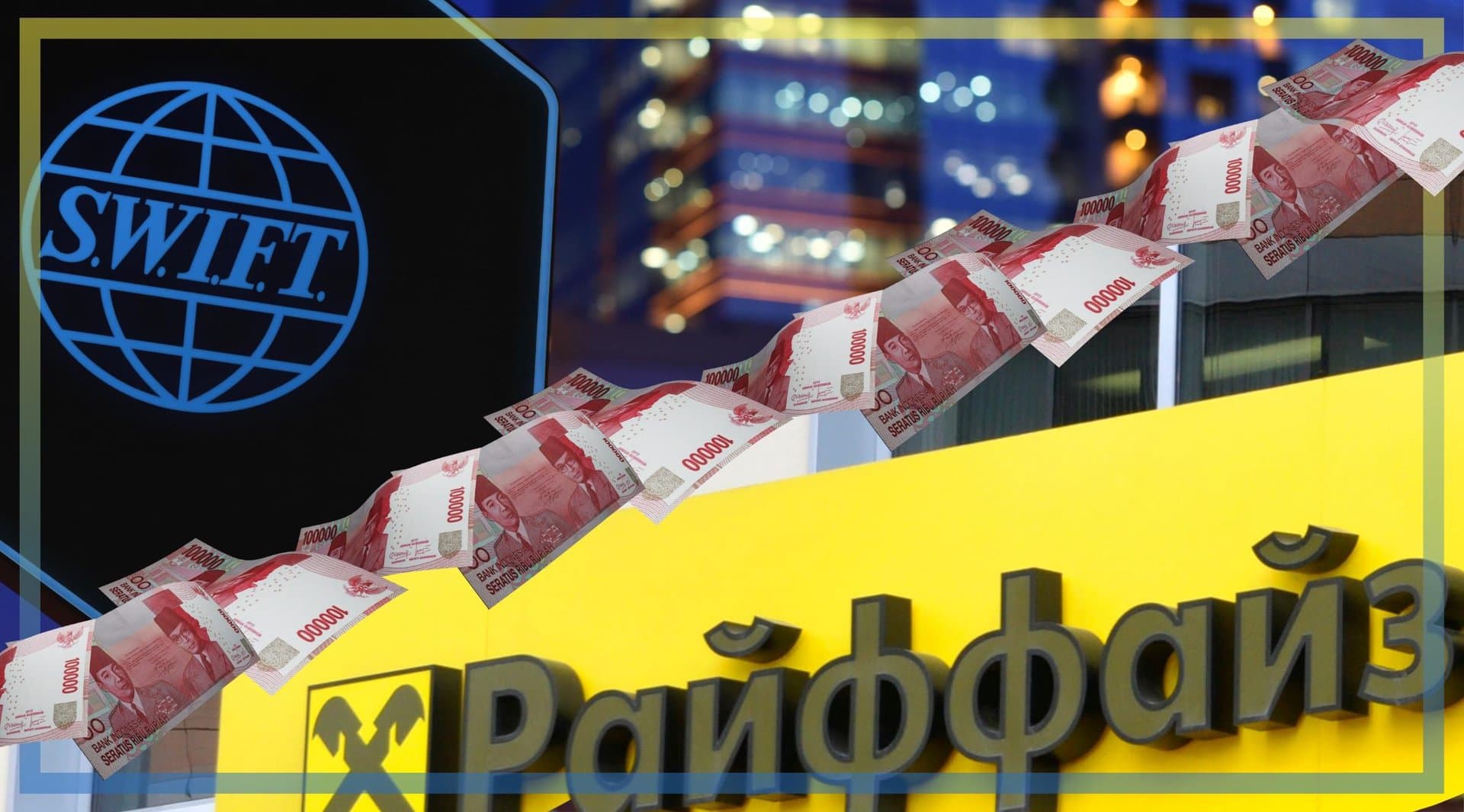In February the U.S. Office of Foreign Assets Control (OFAC) sent a Request for Information to Raiffeisen Bank International AG (RBI). The questions raised were of a general nature and sought to clarify payments business maintained by RBI in light of the recent developments related to Russia and Ukraine.
Whilst the Request was not triggered by any specific transaction or business activity, it did trigger substantial international interest.
Raiffeisen, a senior executive at the bank told the Financial Times, now handles 40-50 per cent of all the money flows between Russia and the rest of the world. https://t.co/odFjSxRSjT
— Polina Ivanova (@polinaivanovva) February 27, 2023
In February the FT highlighted a few concerns about the Austrian banking giant’s activities in Russia. The bank reported €3.6 billion in profits for 2022. Of that, €2.2 billion of those profits came from Russia and Belarus. A fourfold increase from 2021.
Johann Strobl, CEO of RBI, said that “we have very, very good results on the one hand, but on the other hand enormous problems.”
Not long after, Strobl was quoted by Reuters as confirming that the Russian business was up for sale. “RBI will pursue possible transactions that can lead to a sale or a spin-off of Raiffeisenbank Russia and its deconsolidation from the RBI group.”
The Chairman of RBI, Erwin Hameseder, had a different message for critics. He shared how most Western businesses had not left Russia despite its invasion of Ukraine. He also highlighted how the war was unjustified.
In any event, RBI has around 2,600 corporate customers, 4 million local account holders and 10,000 staff in Russia. All of whom are watching developments keenly.
What about Raiffeisen’s Stock Price?
With both the ECB and OFAC monitoring the situation at RBI, it’s no surprise that investors are wondering what the future will hold for the leading Austrian bank.
RBI has a market capitalization of €4.8 billion according to the website of the Vienna Stock Exchange. It’s share price collapsed from over €28 before the breakout of the war. And the bank’s stock is currently trading at under €15. With record profits in 2022 the stock doesn’t reflect the bank’s results. TradingView’s traders are neutral on the bank at the moment, but some other investors are more bullish.
In RBI’s 2022 Financial Report the bank highlighted how Russia has introduced restrictions to capital flows to so-called ‘unfriendly countries’. This concept of unfriendly countries is a response by Putin to western sanctions, and the European Union including Austria sits high on that list.
Back to the Report itself. One thing that stands out is the large increase in net interest income, around 40% of which comes from the Russian market:
“The largest increase, of €784 million, was recorded in Russia due to the appreciation of the Russian ruble and higher interest income from repo business, mainly due to the temporarily unusually high key interest rate for deposits with the Russian central bank. Which was doubled to 20% for a short time immediately after the outbreak of war.”
Net fee and commission income was driven by the geopolitical situation with a huge uplift for Raiffeisen in Russia. Upward spikes in March after the onset of war and in September after the partial mobilization in Russia (mandatory military duty) embellished the explanation.
What this means is that the Russian and Austrian businesses are hard to separate. Russia is named in the financial report several hundred times.
Is SWIFT the biggest reason for the increase in revenue in Russia?
One may be forgiven if one thought that all banks in Russia have come off the SWIFT payment system. Yes, all Russian banks linked to oligarchs have been removed. But not all banks operating in Russia have had the ability to make SWIFT payments revoked. Raiffeisen Bank is one of these banks.
Strangely there is no mention of SWIFT in RBI’s financial report. But there is plenty other information out there to confirm that access to SWIFT has played a big part in the profits that Raiffeisen has made in Russia.
It is worth remembering that only seven Russian banks were removed from SWIFT. There are hundreds more operating in Russia today. This has given nations like India ways to work around Russia’s SWIFT ban.
Last week the UN Secretary General proposed to Putin that he extend a deal allowing the safe Black Sea export of grain from Ukraine in return for connecting a subsidiary of Russia’s agricultural bank to the SWIFT international payment system, according to Reuters.
Unfortunately, SWIFT itself doesn’t offer much information on the details. But it is a big bargaining chip in anything to do with Russia as the UN’s actions show.
Can RBI Sell Raiffeisen in Russia?
Last year Societe Generale got rid of its Russian business. It wasn’t an easy process, but it kicked off the sale soon after the breakout of the war in Ukraine. Importantly, most market commentators agree that the French banking giant made almost nothing from the transaction.
French bank Societe Generale has agreed to sell its stake in Rosbank and the Russian lender’s insurance subsidiaries to Interros Capital, a firm linked to billionaire Vladimir Potanin https://t.co/AmVsF2lHe4 pic.twitter.com/PTmnhrzQBC
— Reuters (@Reuters) April 11, 2022
This story is particularly interesting as it highlights some of the problems that RBI faces too. Except that RBI seems to have preferred the option of waiting to see what happens with the war.
As the war continues, it shows how prudent Societe Generale was in what is in effect a ‘firesale’ of its Russian business. At the same time RBI faces a quandary. If a Russian oligarch bought the bank, like in the case of Societe Generale, then the SWIFT access would be removed due to sanctions. Meaning that any acquired business would immediately lose its main selling point. Lowering the value even further.
Another interesting case is the story of VEON. VEON isn’t a bank, it is a mobile operator trading on the Amsterdam stock exchange. It received $2.1 billion from the sale of its Russian business. The firm, similarly to Raiffeisen, makes a large amount of its profits in Russia. The company has 217 million customers in nine countries. Russia is its number 1 market.
Russia approves Veon's sale of Vimpelcom to management -RBC … – Reuters https://t.co/C9DdUzQxqs
— Russia (@Russia24x7) February 1, 2023
However, where VEON has managed to sell to its local management board in Russia, this option is unlikely in Raiffeisen’s case.
Pressure from the ECB
The biggest issue facing RBI’s management board is whether they can actually getting anything for the sale of the Russian business. Talks are underway between RBI and the ECB about approval for its plans in Russia. An RBI spokesperson said it will continue to pursue a sale or spin-off and is committed to reducing its Russian business. Ideally by September.
The problem is that RBI is not moving as quickly as some would like. Including the ECB. In fact, the ECB has already urged RBI not to pay a dividend this year because of its concerns over Russia. Additionally, the recent Wagner incident has reportedly unsettled Russia’s elite. Meaning that stakeholders in both the EU and Russia have other issues on the agenda that are making a sale difficult.
“A bank cannot leave a country like that overnight,” a spokesperson at RBI shared. Highlighting how divisive RBI’s presence in Russia is for the management of the bank.
Firesale, MBO, or any other exit strategy is possibly being considered by the Austrian banking leader. The question is whether or not regulators will have the patience to wait for the war to end. Which is clearly RBI’s preference.
Importantly, though, is the way that SWIFT has played a major role in the story. A role that many spectators may not have been aware of… A role that perhaps SWIFT should explain to the market more clearly.
Author: Andy Samu
#Raiffeisen #Ukraine #Russia #War #SWIFT #FireSale #Austria #SocieteGenerale #VEON #Sanctions
See Also
Zelensky’s Economic Advisor: ‘The economy is vital’ | Disruption Banking
Airbnb’s Hryvnia support makes up for Ukraine’s War Bonds | Disruption Banking
The Uncertain Future of the Moscow Stock Exchange | Disruption Banking
Are Banks Facing Russia Sanctions Doing Enough? | Disruption Banking















